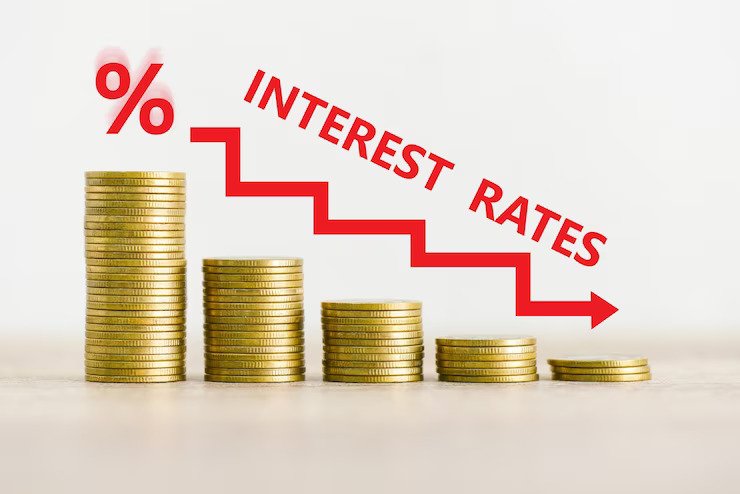Refinance Loans : Money can be tricky. Sometimes, it feels like it slips through our fingers faster than we can catch it. But there’s a financial superhero called a “refinance loan” that can swoop in and rescue your finances when you’re in a tight spot. Let’s explore what a refinance loan is and how it can come to your financial rescue.
What Is A Refinance Loan?
A refinance loan is like a fresh start for your existing loans. You might have loans for your home, car, or even your education. Refinancing is when you take out a new loan to pay off the old one. It can help you in a few different ways.
Lower Interest Rates

Imagine you have a credit card with a high interest rate, like 20%. That means for every dollar you owe, you have to pay back an extra 20 cents in interest. Ouch! But with a refinance loan, you might be able to get a new loan with a lower interest rate, like 10%. That’s like paying only 10 cents in interest for every dollar you owe. It saves you money in the long run.
Lower Monthly Payments
Sometimes, your monthly loan payments can be too much to handle. Refinancing can help make those payments more manageable. By extending the loan term (the time you have to repay the loan), you can reduce the amount you need to pay each month. It’s like breaking down a big sandwich into smaller, easier-to-eat pieces.
Shorter Loan Term
On the flip side, if you want to get out of debt faster, you can refinance to shorten the loan term. While your monthly payments might be a bit higher, you’ll pay less in interest overall, and you’ll be debt-free sooner.
Consolidating Debt

You might have different loans from various places, like multiple credit cards, personal loans, or student loans. Managing all these loans can be a real headache. Refinancing allows you to combine all those loans into one. This makes it easier to keep track of your debt and your payments.
Improve Your Credit Score
Refinancing can also help improve your credit score. If you’ve been making your payments on time and get a better interest rate with a refinance loan, it can positively impact your credit. A higher credit score opens doors to better financial opportunities in the future.
When To Use A Refinance Loan
Now that you know how refinance loans work, when should you consider using one?
- High-Interest Loans: If you have loans with high-interest rates, like credit cards or personal loans, consider refinancing to lower those rates.
- Lower Monthly Payments: If your monthly payments are too much to handle, refinancing can make them more affordable.
- Consolidating Debt: When you have several loans and want to simplify your finances, consider consolidating with a refinance loan.
- Shorter Loan Term: If you want to get out of debt faster and can handle higher monthly payments, refinancing for a shorter term might be the way to go.
- Good Credit Standing: If your credit score has improved since you took out your original loans, you might qualify for a better deal with a refinance.
Remember, refinancing isn’t a one-size-fits-all solution. It’s essential to do your homework and shop around for the best refinance loan that suits your needs and financial goals.
Conclusion
In conclusion, refinance loans can be your financial rescue team. They help lower interest rates, make monthly payments more manageable, consolidate debt, and even improve your credit score. If you find yourself struggling with high-interest loans or want to simplify your finances, consider the power of a refinance loan to help you regain control of your money. It’s like a financial superhero coming to your rescue!
Also Refer : How Can You Qualify For Government Loans?
FAQs
1. What is a refinance loan, and how does it work?
A refinance loan is a new loan taken out to replace an existing one. It allows you to pay off your old loan and start with a new loan with potentially better terms, such as a lower interest rate or extended repayment period.
2. How can a refinance loan rescue my finances?
Refinancing can rescue your finances by potentially lowering your monthly payments, reducing your interest rate, and improving your overall financial situation.
3. What types of loans can be refinanced?
You can refinance various types of loans, including mortgages, auto loans, personal loans, and student loans.
4. When should I consider refinancing my mortgage?
You should consider refinancing your mortgage when interest rates are lower than your current rate, when your credit score has improved, or when you want to change the loan’s terms.
5. Are there costs associated with refinancing?
Yes, there are costs associated with refinancing, such as application fees, appraisal fees, and closing costs. It’s essential to weigh these costs against the potential savings.
6. Can I refinance if I have a bad credit score?
It is possible to refinance with a lower credit score, but you may not qualify for the best rates. Your credit score will influence the terms and conditions of the new loan.
7. What is a cash-out refinance, and how does it work?
A cash-out refinance allows you to borrow more than your current mortgage balance and receive the difference in cash. It’s a way to tap into your home equity.
Source Image : Freepik.com

